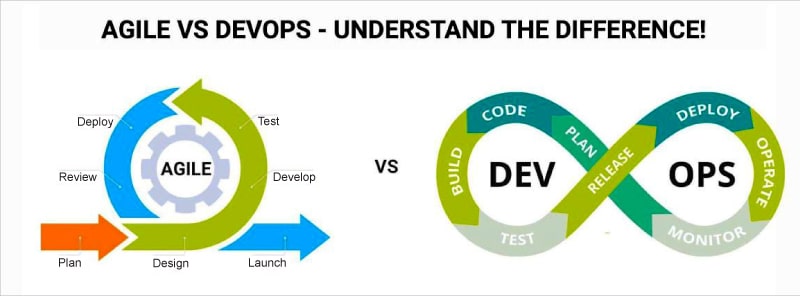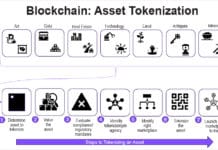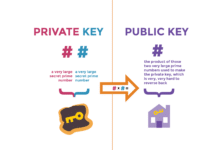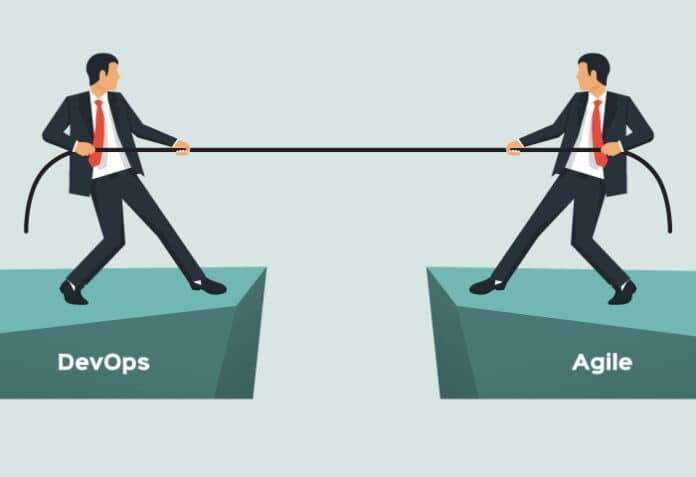Explore Agile and DevOps, understanding their principles, differences, recent transformations, and the partnership that fuels software excellence.
In the fast-paced and ever-evolving world of software development, two methodologies have emerged as game changers, empowering teams to deliver high quality products efficiently and swiftly. DevOps and Agile are two distinct approaches that have gained significant popularity in recent years, each with its own set of principles and advantages. While they share some similarities, they address different aspects of the development process and serve unique purposes.
In this article, we will delve into the world of DevOps and Agile, highlighting their key differences, core principles, and how they can complement each other. By understanding these methodologies, you’ll be better equipped to make informed decisions for your team and project, optimising your software development processes and achieving remarkable results. So, buckle up, as we embark on this journey of discovery into the realms of DevOps vs Agile.
Knowing Agile
Agile is the go-to approach for iterative and incremental development. It’s all about collaboration, customer feedback, and adaptability to changes. Agile teams work in short development cycles called ‘sprints’, which usually last around two to four weeks. And Scrum, one of the most popular Agile frameworks, is all about that!
Here are Agile’s core values, as laid out in the Agile Manifesto:
- People and interactions are more vital than processes and tools.
- Working software beats comprehensive documentation any day.
- Customer collaboration trumps contract negotiation.
- Being able to adapt to change is way better than following a rigid plan.
Knowing DevOps
DevOps is not a development methodology; rather, it’s a set of practices that foster collaboration and communication between development and operations teams. It’s all about breaking down barriers and creating a culture of shared responsibility throughout the entire software delivery process.
The key principles of DevOps are as follows.
- Collaboration is the name of the game: DevOps puts collaboration front and centre. It’s all about smashing those silos between development, operations, and other teams involved in the software life cycle.
- Automate everything: Imagine automating tasks like building, testing, and deploying software. Cool, right? That’s what DevOps is all about. It speeds up the delivery process and makes it more reliable.
- Say ‘hello’ to CI/CD: Continuous integration and continuous deployment (CI/CD) are DevOps’ BFFs. They help integrate code changes frequently and automate the whole deployment process.
- Feedback is golden: DevOps doesn’t shy away from feedback. Monitoring tools are used to gather performance and user experience insights, making room for continuous improvement.

Differences between Agile and DevOps
Agile and DevOps may seem like two peas in a pod, but they have their differences.
1. Scope
- Agile focuses on the development phase, building and prioritising features.
- DevOps covers the entire software delivery pipeline, from development to testing, deployment, and operations.
2. Focus
- Agile aims to deliver the most valuable features to customers regularly within short sprints.
- DevOps focuses on collaboration and automation, ensuring speedy and reliable deployments.
3. Team structure
- Agile thrives on cross-functional teams working together in sprints.
- DevOps breaks down walls between Dev (development) and Ops (operations), creating a more integrated and collaborative team.
4. Timeframe
- Agile operates in fixed-length iterations (sprints) of one to four weeks.
- DevOps goes for continuous delivery, slashing the time between code changes and deployment.
Complementary relationship
DevOps and Agile, when combined, create a powerful synergy that enhances software development in various ways.
Faster time-to-market: Agile’s iterative development, combined with DevOps’ automated deployment, ensures rapid and continuous delivery, reducing time-to-market.
Continuous feedback loop: Agile’s customer collaboration is amplified by DevOps’ monitoring tools, providing real-time feedback for improvements.
Enhanced quality: Agile’s focus on testing and DevOps’ automation result in higher software quality and reliability.
Efficient collaboration: DevOps encourages a culture of collaboration among teams, reinforcing Agile’s emphasis on cross-functional cooperation.
Adaptability: Agile’s iterative approach and DevOps’ automation allow teams to adapt quickly to changing requirements and market demands.
Recent changes in Agile and DevOps
In response to evolving industry needs, Agile and DevOps have embraced transformative changes.
SecOps integration: With an increasing focus on security, DevOps has evolved to include SecOps practices. Security is integrated into the entire development life cycle, ensuring the early detection and prevention of vulnerabilities.
AI and automation: DevOps and Agile are leveraging artificial intelligence and machine learning to further automate processes, optimise workflows, and enhance decision-making.
Site reliability engineering (SRE): SRE, an approach within DevOps, focuses on maintaining the reliability of applications in production. It emphasises resilience, monitoring, and rapid incident response.
The verdict: A powerful duo
Agile and DevOps are a match made in software heaven! While Agile lays the foundation with customer-centricity and iterative development, DevOps steps in with automation and continuous delivery to turbo-charge the process. Together, they form a powerful duo that can take your software development to new heights. This complementary relationship boosts productivity, customer satisfaction, and overall software quality, making them essential methodologies for modern development teams.
Remember, there’s no one-size-fits-all solution when it comes to choosing between Agile and DevOps. It depends on your team’s specific needs and your organisation’s goals. Some teams may adopt Agile first and then introduce DevOps practices gradually, while others might implement both methodologies simultaneously.
In conclusion, DevOps and Agile are two remarkable methodologies that have transformed the software development landscape. Agile brings customer focus, adaptability, and collaboration, while DevOps contributes automation, speed, and reliability. By understanding their unique benefits and how they complement each other, you can make an informed decision on which approach best suits your team and project.
So, whether you’re on Team Agile, Team DevOps, or the perfect combination of both, get ready to deliver outstanding software and delight your users.













































































